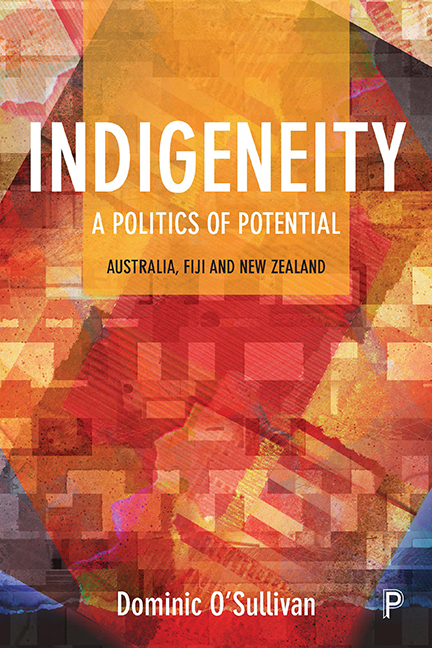Book contents
- Frontmatter
- Dedication
- Contents
- Acknowledgements
- Introduction
- one Reconciliation
- two The politics of indigeneity
- three Liberal democracy and differentiated citizenship
- four Liberal democratic inclusion
- five Indigeneity and contemporary globalisation
- six Economic development as differentiated citizenship: Australia
- seven Economic development as differentiated citizenship: New Zealand
- eight Economic development as differentiated citizenship: Fiji
- Conclusion
- References
- Index
six - Economic development as differentiated citizenship: Australia
Published online by Cambridge University Press: 05 April 2022
- Frontmatter
- Dedication
- Contents
- Acknowledgements
- Introduction
- one Reconciliation
- two The politics of indigeneity
- three Liberal democracy and differentiated citizenship
- four Liberal democratic inclusion
- five Indigeneity and contemporary globalisation
- six Economic development as differentiated citizenship: Australia
- seven Economic development as differentiated citizenship: New Zealand
- eight Economic development as differentiated citizenship: Fiji
- Conclusion
- References
- Index
Summary
Yindyamarra winhanga-nha [The wisdom of knowing how to live well in a world worth living in]
Introduction
Indigenous economic practice and aspirations emphasise economic activity's cultural context and purpose; practices and aspirations that routinely differ from Australian public policy's instinctive presumptions. In focusing on the politics of indigenous economic development, as differentiated citizenship and as an essential constituent of Australian reconciliation, this chapter notes the philosophical contrast between prevailing indigenous thought and policy measures such as the Commonwealth's Indigenous Economic Development Strategy and ‘Closing the Gap in Indigenous Disadvantage’. The contrast reflects the view that a people's capacity to define itself is an important constituent of self-determination. It is especially important in preventing the development of negative and potentially prophetic stereotypes. In short: ‘Aboriginal Australia must not be dominated by Mainstream Australia's perception of who we are’ (Sarra, 2014, p. 79).
Indigenous actors’ repeated emphasis on transgenerational wellbeing shows that economic development is understood as part of a complex policy domain closely intertwined with social stability, employment, health and educational opportunities. Indeed, there is a ‘gap’ to be ‘closed’ between indigenous experience and public policy, not just in relation to the labour market, but also in schooling where the idea of culturally cognisant pedagogy is sharply contested and provides an important contrast with New Zealand, which is explored in the following chapter, where Maori have assertively advanced the view that cultural equality in schooling is a mark of genuinely equal citizenship.
Access to functioning markets for education, housing, employment and access to the middle class are important determinants of prosperity. The relative size of the indigenous middle class is a measure of indigenous access to full and substantive citizenship and this chapter especially considers the proposition that ‘culture counts’ (Bishop and Glynn, 1999) in economic development and its determinants. Culture remains a possible determinant of material wellbeing even though it is true that at other times people may make deliberate choices about what they value that emphasise other priorities over the material. However, these choices exist at one extreme of a range of possibilities and the chapter shows, for example, that ‘culture counts’ in developing alternatives to passive welfare and in measures that realise not just the ‘right’ to self-determination, but its transformative capacity such that poverty need not remain colonialism's necessary legacy.
- Type
- Chapter
- Information
- Indigeneity: A Politics of PotentialAustralia, Fiji and New Zealand, pp. 109 - 130Publisher: Bristol University PressPrint publication year: 2017

